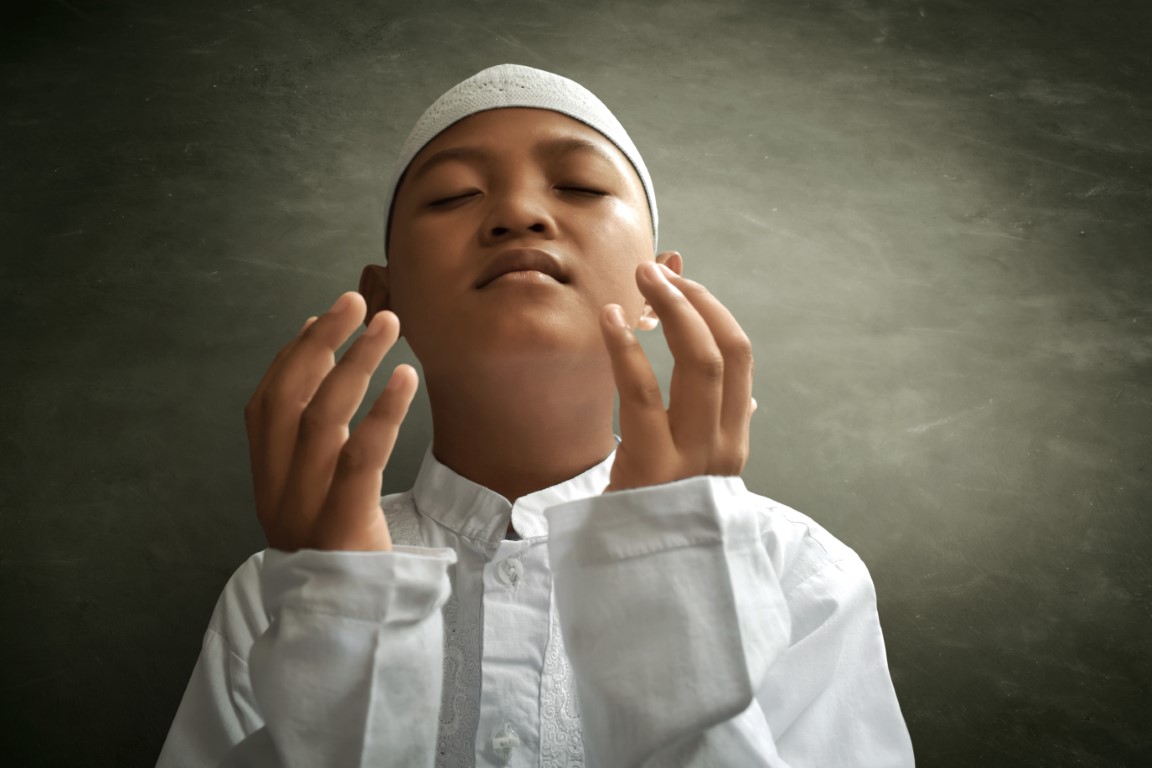IS A MUSLIM STUDENT ENTITLED TO PERFORM THEIR DAILY PRAYERS AT SCHOOL?
Summarized: A Muslim schoolchild may perform prayer at school, albeit not during class. Additionally, the prayer may not be executed in areas where others are subject to it without their will, such as in a crowded classroom.
According to the case law of the Federal Constitutional Court, religious acts prescribed by a faith are, as a principle, protected by Article 4 of the German Constitution which guarantees freedom of religion.1 The Islamic fard prayer, which is to be performed five times daily, can be sufficiently regarded as a rule of the Islamic faith which is entitled to protection under freedom of religion. The fact that there are other opinions on the mandatory nature of the prayer is not of note here. Decisive is, rather, the perception of the person concerned.2 Students can also invoke their right to religious freedom from the age of 14. Before that, it is the parents who exercise this right in accordance with the rights they are granted under parental upbringing as per Article 6 of the German Constitution.
The religious freedom of students who pray at school is usually not affected by the negative freedom of religion of other school children and teachers.3 This is because the individual doesn’t generally have the right to remain completely unexposed to foreign expressions of faith, religious activities and symbols.4
The right of a student to pray doesn’t go against the religious upbringing rights of the parents of the other school children.5 The parental right of upbringing does give parents the right to keep their children away from foreign religious beliefs.6 This right isn’t violated by the establishment of prayers by another student as long as the other children have sufficient possibilities of not being privy to it.7 If the prayer is performed in a space that is meagerly used, any confrontation is limited to a fleeting encounter and there is no undue influence on part of the student in prayer.8 Consequently, prayer at school may not be performed where the other students and teachers are forced to be confronted with it, such as in a classroom which is in use during break.
Prayer does not ultimately go against the state’s obligation to neutrality.9 This obligation to neutrality does require the state to implement ideological and religious neutrality.10 The state therefore cannot identify itself with, give special privilege to or act exclusionary towards any religion. This obligation is, however, not to be regarded as a distancing between the state and church, rather as an open and inclusionary attitude which promotes all religions equally. Allowing prayer to be performed at school is neither partial behavior on part of the state it's identification with the Islamic faith and therefore doesn’t violate the state’s obligation to neutrality.
According to the case law of the Federal Administrative Court, it is possible for some exceptional cases to come in conflict with the state educational mandate of Article 7, paragraph 1 of the Constitution. This mandate includes imparting awareness; this means that the prayer may not be performed during class or during break.11
In addition, the mandate requires the maintenance of peace at school (Schulfrieden).12 This is an important community value and could be threatened by religiously motivated actions, says the Federal Administrative Court. This is how the Court ruled in favor of a school prohibiting a student to pray in school in Berlin, because of the school considering it to be a plausible threat to the peace at school and a prayer prohibition in such cases is permissible without any explicit prohibition of it in any legal code.13 At this particular school, there had already been instances of significant religion-based conflicts amongst the school children which had failed to be resolved by other educational measures.14 Because of the plurality of religions found at this school and the limited material and human resources, as well as organizational problems, it had not been possible to set up a prayer room on the premises.15 The establishment of a prayer room would have ultimately been considered as the ’milder measure’ to be taken before having pronounced a ban.
Last year, another relevant case from Wuppertal became publicized. The principal of a high school in the city sent an email to the entire staff stating that prayer was not permitted at the school. The staff was further ordered to inform any praying students of this prohibition, to take down the concerned students’ names and report them to administration. A staff member then gave a comment to the press, stating that the Muslim students had always prayed in the basement or in empty classrooms, and that there had hardly been any problems arising from this. Nobody had done anything provocative or had preached to others.16 According to this account, it could therefore not be assumed that there was any concrete danger to the peace at school, making the ban on prayer the school’s management unjustifiable and thus probably unlawful.
1 Federal Constitutional Court, resolution from 16. 05.1995, 1 1087/91, margin 34.
2 Federal Constitutional Court, case from 30.11.2011, 6 20.10, margin 19.
3 Previous case, margin 27.
4 Previous case, margin 30.
5 Previous case, margin 27.
6 Previous case, margin 32.
7 Previous case, margin 33.
8 Previous case, margin 30.
9 Previous case, margin 27.
10 Previous case, margin 35.
11 Previous case, margin 24.
12 Previous case, margin 42.

